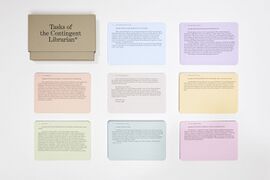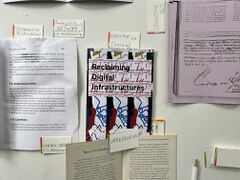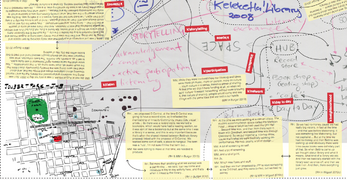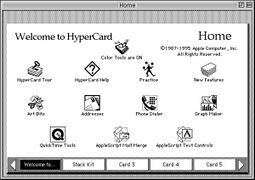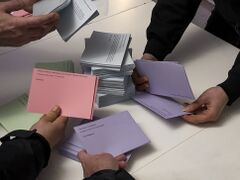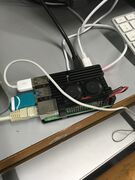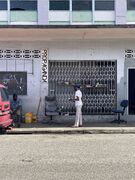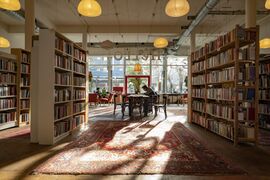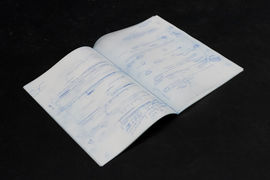How Do We Library That?: Difference between revisions
| Line 21: | Line 21: | ||
<!-- The public library system once a primary access point to common knowledge. --> | <!-- The public library system once a primary access point to common knowledge. --> | ||
Public libraries are more than just access points to knowledge. They are busy sites of social activities such as reading together, annotating, organising and structuring. These libraries are slowly dying, threatened by a business logic that sees libraries as just containers for files and books. But as public libraries are replaced by [https://www.bibliotheca.com/ self-service software] and paywalls, shadow and [https://placesjournal.org/article/fugitive-libraries/?cn-reloaded=1 fugitive libraries] appear in their wake, founded upon values of community, cultural literacy and open access. | Public libraries are more than just access points to knowledge. They are busy sites of social activities such as reading together, annotating, organising and structuring. These libraries are slowly dying, threatened by a business logic that sees libraries as just containers for files and books. But as public libraries are replaced by [https://www.bibliotheca.com/ self-service software] and paywalls, shadow and [https://placesjournal.org/article/fugitive-libraries/?cn-reloaded=1 fugitive libraries] appear in their wake, founded upon values of [https://pls.simonbrowne.biz/index.php?title=Jumbie_Library local community], [https://keleketla.org/ cultural literacy] and open access. | ||
What might be called a library, a book or a text has radically changed in the post-digital age. A library could be; an accumulated stack of printed books, a modular collection of software packages, a method of distributing e-books, a writing machine. New texts can emerge from previous sources | What might be called a library, a book or a text has radically changed in the post-digital age. A library could be; an accumulated stack of printed books, a modular collection of software packages, a method of distributing e-books, a writing machine. New texts can emerge from previous sources | ||
Revision as of 12:11, 16 September 2022
Context
Libraries are complex social infrastructures. It's difficult to describe them without using the plural "libraries", or singular "a library/the library"; as if they were all the same. Universalisms won't help in understanding what is particular about libraries and collections of texts, or their value to their readers.
Public libraries are more than just access points to knowledge. They are busy sites of social activities such as reading together, annotating, organising and structuring. These libraries are slowly dying, threatened by a business logic that sees libraries as just containers for files and books. But as public libraries are replaced by self-service software and paywalls, shadow and fugitive libraries appear in their wake, founded upon values of local community, cultural literacy and open access.
What might be called a library, a book or a text has radically changed in the post-digital age. A library could be; an accumulated stack of printed books, a modular collection of software packages, a method of distributing e-books, a writing machine. New texts can emerge from previous sources
Special Issue 19
In this Special Issue, we will depart by considering the word "library" as a verb; a set of actions that sustains the production, collection and distribution of texts. We will question indexical attitudes that lean towards universalisms and search for proposals for how we "library" our particular collection.
How are texts made new? How to make a collection understandable to others? What are the access points to the collection, and how do readers and writers cross paths?
We will attempt to answer these questions through experiments while asking ourselves: How do we library that? Rather than looking only at what a library stores, we will also think about what it produces. Library as; writing machine, network of accumulated practices and distribution, site of cultural literacy and learning, social space of text.
Schedule
One: Tasks of the Contingent Librarian
Summary: Contingent librarianship - an ever-growing set of actions
Monday, September 19th, 2022
11:00-17:30 Introduction to the Special Issue (with Simon)
Pad:
To introduce ourselves we will use cards from Tasks of the Contingent Librarian:
- 52 cards on the table (e.g. bootlegging, indexing, scanning, reading, technologising the word, &c)
- Choose a card that matches your curiosities and/or interests
- Exchange a card with someone else, describing how you relate to the card
- Exchange a card, relate that relation to someone else
- Make a new card, what information does it need?
Tuesday, September 20th, 2022
11:00-17:30 Prototyping with Manetta & Joseph
Pad:
Wednesday September 21st, 2022
11:00-17:00 Introduction to Reading, Writing and Research Methodologies with Steve
Pad:
Two: Print Screen
Summary: Plain text & annotation, from markup to markdown
Monday, September 26th, 2022
Pad:
Tuesday, September 27th, 2022
11:00-17:30 Prototyping with Manetta & Joseph
Pad:
Wednesday September 28th, 2022
11:00-17:00 Methods with Steve
Pad:
Three: Text, TBC
Summary: Dimensions of text - editorial, technical, social
Monday, October 3rd, 2022
Pad:
Tuesday, October 4th, 2022
11:00-17:30 Prototyping with Manetta & Joseph
Pad:
Wednesday October 5th, 2022
11:00-17:30 Methods with Steve
Pad:
Four: Scribes Getting Personal ☞
Summary: different ways to indicate/index/point to things
Monday, October 10th, 2022
Pad:
Tuesday, October 11th, 2022
11:00-17:30 Prototyping with Manetta & Joseph
Pad:
Wednesday October 12th, 2022
11:00-17:30 Methods with Steve
Pad:
Five: Do e-books dream of electronic spreadsheets?
Summary: Logics of databases
Monday, October 17th, 2022
Pad:
Tuesday, October 18th, 2022
11:00-17:30 Prototyping with Manetta & Joseph
Pad:
Wednesday October 19th, 2022
11:00-17:30 Methods with Steve
Pad:
🍁🍁🍁
Autumn Vacation
Six: Binding Along the Spine
Summary: Digital and analog binding
Monday, October 31st, 2022
Pad:
Tuesday, November 1st, 2022
11:00-17:30 Prototyping with Manetta & Joseph
Pad:
Wednesday November 2nd, 2022
11:00-17:30 Methods with Steve
Pad:
Seven: A Textile, A Framework
Summary: Texts woven together
Monday, November 7th, 2022
Pad:
Tuesday, November 8th, 2022
11:00-17:30 Prototyping with Manetta & Joseph
Pad:
Wednesday November 9th, 2022
11:00-17:30 Methods with Steve
Pad:
Eight: Paper Machines
Summary: Analog interfaces for digital collections
Monday, November 14th, 2022
References:
Pad:
Tuesday, November 15th, 2022
11:00-17:30 Prototyping with Manetta & Joseph
Pad:
Wednesday November 16th, 2022
11:00-17:30 Methods with Steve
Pad:
Nine
Monday, November 21st, 2022
Pad:
Tuesday, November 22nd, 2022
11:00-17:30 Prototyping with Manetta & Joseph
Pad:
Wednesday November 23rd, 2022
11:00-17:30 Methods with Steve
Pad:
Ten
Monday, November 28th, 2022
Pad:
Tuesday, November 29th, 2022
11:00-17:30 Prototyping with Manetta & Joseph
Pad:
Wednesday November 30th, 2022
11:00-17:30 Methods with Steve
Pad:
Eleven
Monday, December 5th, 2022
Pad:
Tuesday, December 6th, 2022
11:00-17:30 Prototyping with Manetta & Joseph
Pad:
Wednesday December 7th, 2022
11:00-17:30 Methods with Steve
Pad:
Twelve
Monday, December 12th, 2022
Pad:
Tuesday, December 13th, 2022
11:00-17:30 Prototyping with Manetta & Joseph
Pad:
Wednesday December 14th, 2022
11:00-17:30 Methods with Steve
Pad:

